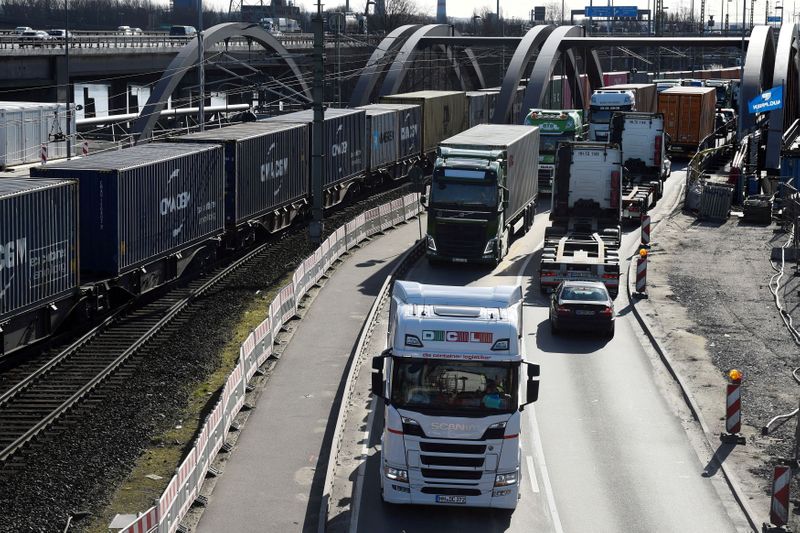BERLIN (Reuters) - More than half of German companies doing business abroad are hit by severe problems in their supply chains or logistics, pushing them to diversify suppliers, shorten delivery routes and also relocate their own production, a survey showed on Tuesday.
The German economy, Europe's largest, has boomed on the back of globalisation over the past decade. But pandemic-related disruptions in the worldwide network of supply chains that used to turbo-charge its growth engine are now proving a critical weakness.
Shortages of semiconductors and other industrial components are threatening to bring Germany's economic recovery to a standstill, forcing executives to re-think supply lines and try to reduce reliance on a handful of Asian and U.S. suppliers.
The survey by the DIHK Chambers of Industry and Commerce among 3,200 of its members doing business abroad showed that the supply chain woes in world trade have become worse: More than half of the companies reported problems in their supply chains or logistics, up 14% compared to the spring.
"Rising global demand is currently coupled with insufficient production capacities and transport problems," DIHK trade expert Volker Treier said.
The reasons for the disruptions are manifold, ranging from a lack of containers and freight capacities on ships as well as production stoppages caused by COVID restrictions as well as missing components.
The supply chain disruptions can also be traced back to serious trade policy distortions by other governments, such as regulations forcing German companies to produce certain intermediate goods only locally, Treier said.
In view of those problems, 54% of companies are planning to adapt supply chains or have already done so, the survey showed.
Of those companies, 72% are looking for new or additional suppliers, 32% are planning to shorten or change delivery routes and 15% are determined to relocate their own production.
Important criteria when looking for new production sites are the availability of skilled workers (54%), the geographical location of the production site (43%) and general economic conditions such as taxes, customs duties or sanctions (43%).
The situation is particularly grave for German companies doing business in Britain: A total of 77% of those firms said they had to adapt their supply chains.
Of those companies, 93% said they are seeing themselves being forced to change delivery routes and 39% said they are planning to relocate production, mainly as a result of new trade barriers following Brexit.















